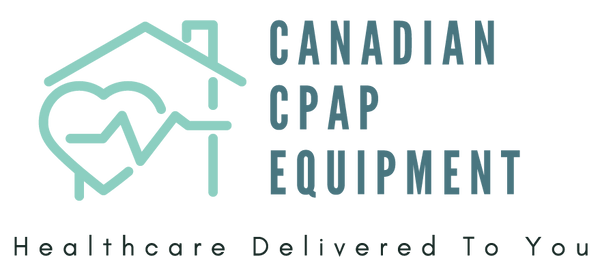Receiving a sleep apnea diagnosis through a home sleep apnea test and starting treatment, such as CPAP therapy, is a significant achievement on your journey to better health. However, managing sleep apnea is not a one-time event; it's an ongoing process that requires consistent attention and regular follow-up care. Just as you wouldn't expect to take a single dose of medication for a chronic condition and be cured, effective sleep apnea management necessitates continuous monitoring, adjustments, and support. This commitment to follow-up care is crucial for ensuring the long-term success of your therapy and maximizing its health benefits.
Why Follow-Up Care is Essential
-
Optimizing Treatment Effectiveness: Your initial CPAP pressure settings are often determined based on your sleep study results. However, these settings may need fine-tuning over time. Factors like weight changes, aging, or even changes in your sleep patterns can affect the effectiveness of your therapy. Regular follow-up allows your sleep-trained respirologist to review your CPAP data (which most modern machines record) and make necessary adjustments to ensure you're receiving optimal pressure and achieving the best possible outcomes.
-
Addressing Adherence and Compliance: Consistent use of CPAP therapy is paramount for its effectiveness. Many individuals face challenges with adherence, such as mask discomfort, air leaks, dryness, or simply difficulty adjusting to sleeping with the device. Follow-up appointments provide an opportunity to discuss these challenges openly with your healthcare team. They can offer solutions, suggest alternative masks, or provide tips to improve comfort and compliance, ensuring you stick with your therapy.
-
Monitoring Health Improvements and Risks: Sleep apnea is linked to numerous serious health conditions. Regular follow-up allows your respirologist to monitor the impact of your treatment on these co-morbidities. They can track improvements in blood pressure, blood sugar levels, and overall cardiovascular health. Conversely, if new symptoms arise or existing conditions worsen, they can investigate whether it's related to your sleep apnea management.
-
Troubleshooting Equipment Issues: CPAP machines, masks, and tubing are medical devices that require maintenance and can sometimes develop issues. During follow-up, you can report any equipment malfunctions, wear and tear, or concerns about your device's performance. Your provider can guide you on troubleshooting or facilitate replacements.
-
Updating Your Treatment Plan: As your health status evolves, or as new advancements in sleep apnea treatment emerge, your treatment plan may need to be updated. Follow-up care ensures that your therapy remains aligned with the latest medical guidelines and your current health needs.
-
Patient Education and Support: Living with a chronic condition like sleep apnea can be challenging. Follow-up appointments provide ongoing education about your condition, its management, and strategies for maintaining a healthy lifestyle. They also offer a vital source of emotional support and encouragement.
What to Expect During Follow-Up Appointments
Follow-up appointments for sleep apnea management typically involve:
-
Review of CPAP Data: Your respirologist will often remotely access or ask you to bring in data from your CPAP machine, which records usage hours, AHI, and leak rates. This data provides objective insights into your therapy's effectiveness.
-
Discussion of Symptoms: You'll discuss any lingering or new symptoms, your energy levels, sleep quality, and overall well-being.
-
Mask and Equipment Check: Your provider may assess your mask fit and inspect your equipment for wear and tear.
-
Addressing Concerns: This is your opportunity to voice any questions, concerns, or difficulties you're experiencing with your therapy.
-
Adjustments and Recommendations: Based on the review, your respirologist may adjust your CPAP pressure settings, recommend a different mask, or suggest additional lifestyle modifications.
How Often is Follow-Up Needed?
The frequency of follow-up appointments can vary based on the severity of your sleep apnea, your response to treatment, and any co-existing health conditions. Initially, follow-up might be more frequent (e.g., a few weeks after starting CPAP) to ensure proper adjustment. Once stable, annual or semi-annual check-ups are common. Always adhere to your respirologist's recommended schedule.
Conclusion
Follow-up care is an indispensable component of successful sleep apnea management. It transforms a one-time diagnosis into a continuous partnership with your healthcare team, ensuring your therapy remains effective, your health risks are minimized, and your quality of life is consistently improved. By embracing ongoing monitoring and support, you are investing in your long-term health and well-being.
Next Steps: Sleep apnea can have serious implications beyond just sleep. In our next post, we'll delve into the critical link between sleep apnea and driving, understanding the risks and regulations.

